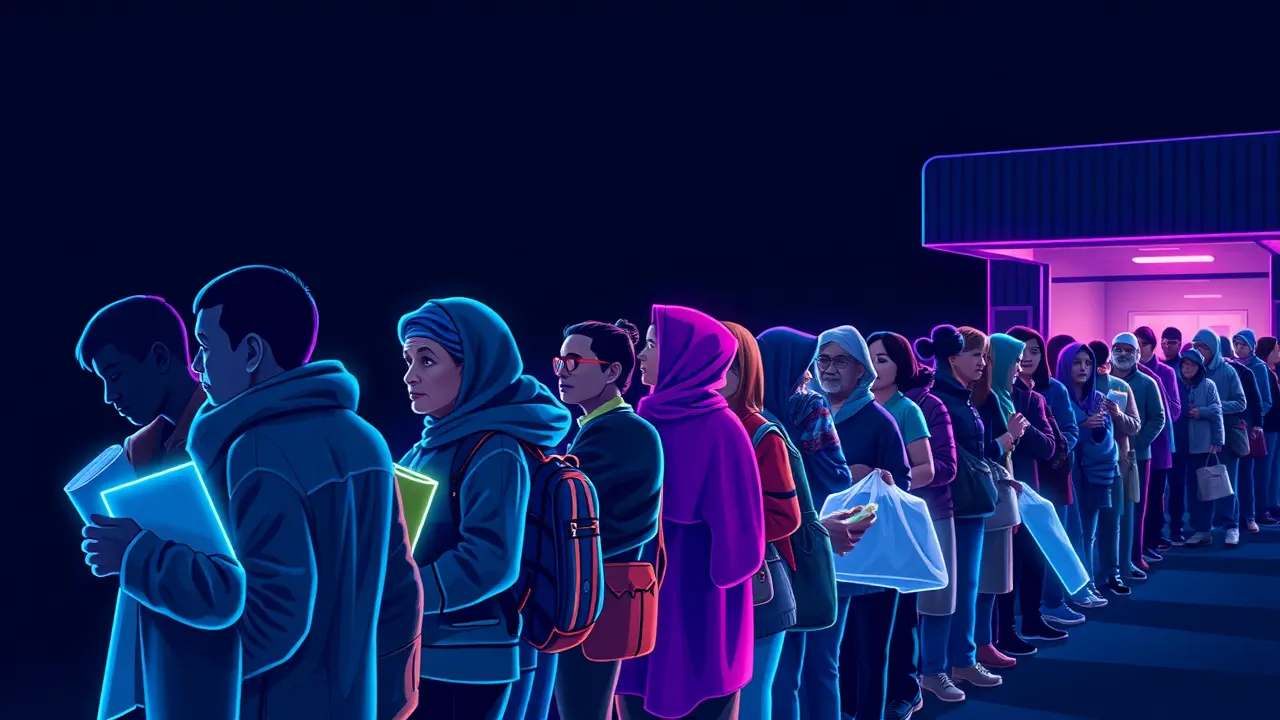
Politicscourts & investigations
US Food Stamp Cuts: Hundreds Queue for Aid as Funding Freeze Looms
AN
Anna Wright
21 hours ago7 min read
The scene outside the Georgia food distribution center was one of quiet, desperate dignity, a tableau of modern American hardship unfolding under a pall of political indecision. Hundreds of families, their faces etched with a familiar anxiety, queued not for a concert or a new tech gadget, but for the most fundamental of necessities: food.This is the human fallout of the US government shutdown, a stark contrast to the abstract political battles waged in Washington D. C.The lifeline for these individuals is the Supplemental Nutrition Assistance Program (SNAP), and its future has been thrown into chaotic uncertainty, a pendulum swung by judicial orders and administrative resistance. At the heart of this crisis is a profound question about the social contract, one that feminist policy analysis has long highlighted: how do the macroeconomic maneuvers and partisan standoffs of powerful leaders translate into the empty cupboards of single mothers, the skipped meals of elderly veterans, and the gnawing hunger in the stomachs of children? The Trump administration's position, which sought to allow the benefits to lapse, represents a particular ideological stance that often overlooks the gendered dimensions of poverty; women, especially women of color, are disproportionately the recipients of SNAP, and they are the ones bearing the brunt of this instability.The judges' orders to keep benefits running are a temporary reprieve, a legal affirmation that the safety net cannot be so carelessly severed, echoing the kind of protective social policy frameworks debated in UN committees on human rights. Yet, this judicial intervention is merely a stopgap, not a solution.It fails to address the underlying fragility of a system where subsistence for millions becomes a bargaining chip. We must look beyond the immediate queue and consider the precedent this sets.It recalls historical moments where governmental failure directly impacted the most vulnerable, from the Hoovervilles of the Great Depression to the more recent austerity-driven cuts to social programs in various European nations, which decades of research have shown deepened inequality and stunted social mobility. Expert commentary from economists and sociologists consistently warns that food insecurity is not merely a personal tragedy but a national drag on productivity, educational outcomes, and public health, creating a ripple effect that costs the economy far more than the program itself.The consequences of letting SNAP falter are calculable and grim: increased emergency room visits for malnutrition-related issues, a rise in childhood developmental delays, and a further entrenchment of intergenerational poverty. The narrative playing out in Georgia is not an isolated incident; it is a symptom of a political culture that has lost sight of the human lives behind the policy documents, a failure of empathy as much as a failure of governance. The personal impact of this funding freeze looms large over every person in that line, each one a story of resilience in the face of a system that seems designed to forget them.
#government shutdown
#SNAP benefits
#food aid
#Georgia
#courts
#food stamps
#lead focus news
Stay Informed. Act Smarter.
Get weekly highlights, major headlines, and expert insights — then put your knowledge to work in our live prediction markets.
© 2025 Outpoll Service LTD. All rights reserved.